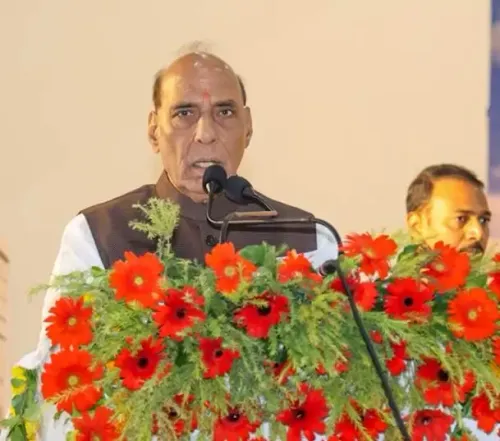CBSE Proposes Biannual Board Exams for Students

Synopsis
Key Takeaways
- CBSE to conduct class 10 board exams twice a year.
- First exam period starts after February 15.
- Second exams scheduled for May.
- Students can choose to take one or both exams.
- Policy aims to reduce exam pressure and enhance student performance.
New Delhi, Feb 26 (NationPress) The Central Board of Secondary Education (CBSE) announced a significant transformation in the class 10 board exams system starting next year, as per officials.
Beginning in 2026, the CBSE will grant students the option to participate in board exams twice a year.
The first exams are set to start on the first Tuesday after February 15 each year.
The initial exams will conclude by March 6.
The second phase of board exams will take place from May 5 to May 20.
This revised system aims to provide students with a chance to enhance their results in the second examination if necessary.
On Tuesday evening, the CBSE unveiled the proposal for conducting board exams biannually.
The draft of the new examination framework is now available for public review on the official CBSE website.
Stakeholders, including schools, educators, parents, students, and the general populace, are invited to share their feedback on the proposed policy.
After extensive discussions, the draft policy has been formulated and posted on the CBSE website.
Responses to the draft policy can be submitted until March 9.
These responses will be evaluated, leading to the finalization of the policy.
The Ministry of Education emphasized that besides introducing increased flexibility, student choice, and the best-of-two attempts, reforms must prioritize assessments that fundamentally evaluate core competencies.
Over time, boards may also devise additional feasible models for board exams that mitigate stress and the pressure of coaching culture.
Potential options include a system of annual/semester/modular board exams that would lessen the volume of material tested, allowing students to take exams immediately after completing corresponding courses, thereby distributing pressure more evenly and reducing the intensity of assessments throughout secondary education.
Subjects and their respective assessments, starting with mathematics, could be offered at two levels.
A notable meeting hosted by the Ministry of Education, chaired by Union Education Minister Dharmendra Pradhan, focused on this policy adjustment.
The proposal aims to give students an opportunity to enhance their performance in board exams, thereby alleviating stress and pressure.
Students will have the autonomy to decide whether to participate in a single exam or both.
The entire examination process will unfold over a span of 34 days.
Within these 34 days, exams for 84 subjects will be conducted.
Approximately 26.60 lakh students are anticipated to take the CBSE Class 10 exams in 2026, according to an official.
The proposal categorizes CBSE Class 10 subjects into four groups.
In the elective group, subjects will include Science, Mathematics, and Social Science.
The regional and foreign language group will incorporate languages such as French, Sanskrit, Urdu, Bengali, Gujarati, and Spanish.
Exams for elective subjects will take place over two to three days, depending on student combinations and preferences.
The CBSE has indicated that while board exams for classes 10 and 12 will continue, the existing structure of board and entrance examinations will undergo reform to eliminate the need for coaching classes.
To counteract the adverse effects of the current assessment framework, board exams will be redesigned to promote holistic development, allowing students to select several subjects for their board exams based on individual interests.
Additionally, board exams will be simplified to focus on assessing core capacities and competencies rather than extensive coaching and memorization. Any student who attends classes and makes a basic effort will be able to perform well in corresponding subject board exams without excessive additional effort.
To further diminish the high-stakes nature of board exams, all students will have the opportunity to take these exams up to two times within a school year: one main exam and one for improvement if desired.
In specific subjects, board exams could be restructured to consist of two components: one part featuring objective questions with multiple-choice options, as stated by the official.









